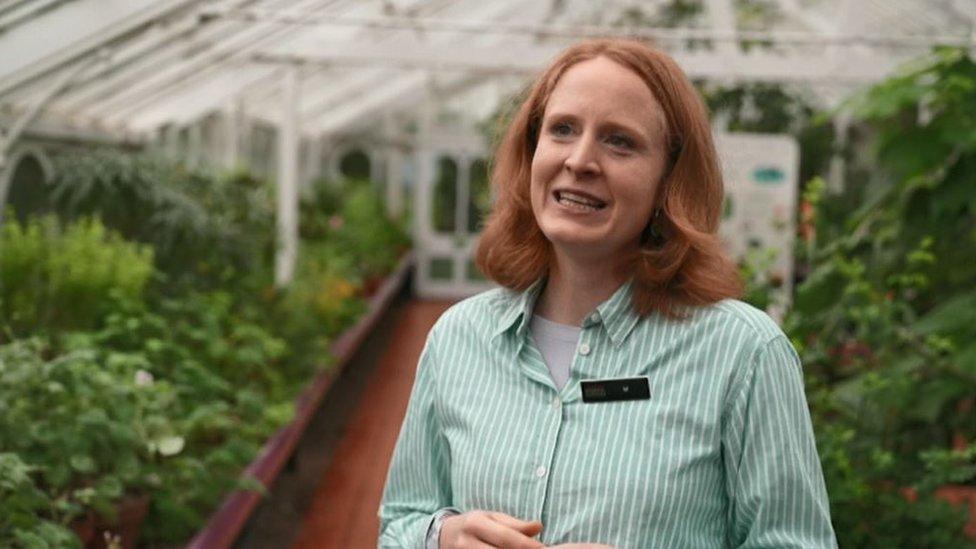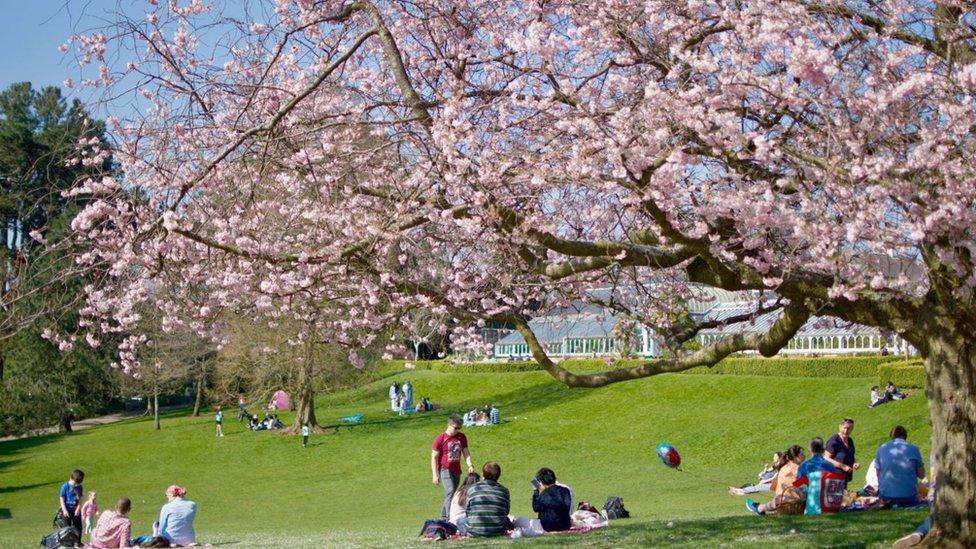Birmingham Botanical Gardens to list thousands of plants in collection
- Published

The Grade-II listed Botanical Gardens is home to more than 7,000 plants and trees
For the first time in a decade, Birmingham's Botanical Gardens are making a list of the thousands of plants in the collection.
It is vital work, as any one of the trees, flowers or shrubs has the potential to be used to find treatments for diseases.
The team running the venue has a role to play in science.
But that can't happen unless they know exactly what they have, so a "plant audit" is under way.
The 191-year-old, Grade II-listed attraction on Westbourne Road is home to more than 7,000 plants and trees.

Emily Hazell explained researchers had so far found a vanilla plant had been incorrectly identified
The gardens' Emily Hazell explained that for researchers, the site is a hugely biodiverse space where any plant might contain a solution to not only disease, but some other issue, from cooking to building.
And indeed it's not just plants. In the past I've talked to scientists sifting soil samples from gardens looking for new and novel life-saving antibiotics.
The trouble is, in any garden, plants multiply and if you are unlucky, they also die.
So you need to keep tabs on what you currently have and make sure it's properly identified and that's what a "plant audit" is all about.
Ms Hazell told me that so far, they've found one large vanilla plant was actually incorrectly identified - a big problem had anyone needed to do research on it.
As well as another enormous prickly cycad, that was actually very rare with about 10,000 left in the wild. It had been hiding in plain sight for a decade.
Among those helping with the audit are scientists from universities in the Midlands.
Laura Civolani, from the University of Warwick, explained she usually tried to kill plants in her laboratory, as she's researching diseases.
But here at the Botanical Gardens, she's learning how to make them thrive while also making a list of all the cacti in the arid greenhouse.
It's fiddly and painstaking work, but once it's done, the completed list will be added to other global botanical garden databases to be used by scientists all over the world.
It may be a beautiful wedding venue, but the gardens could well contain the cure for some of the world's nastiest diseases.

Follow BBC West Midlands on Facebook, external, X, external and Instagram, external. Send your story ideas to: newsonline.westmidlands@bbc.co.uk, external
Related topics
- Published10 July 2023
